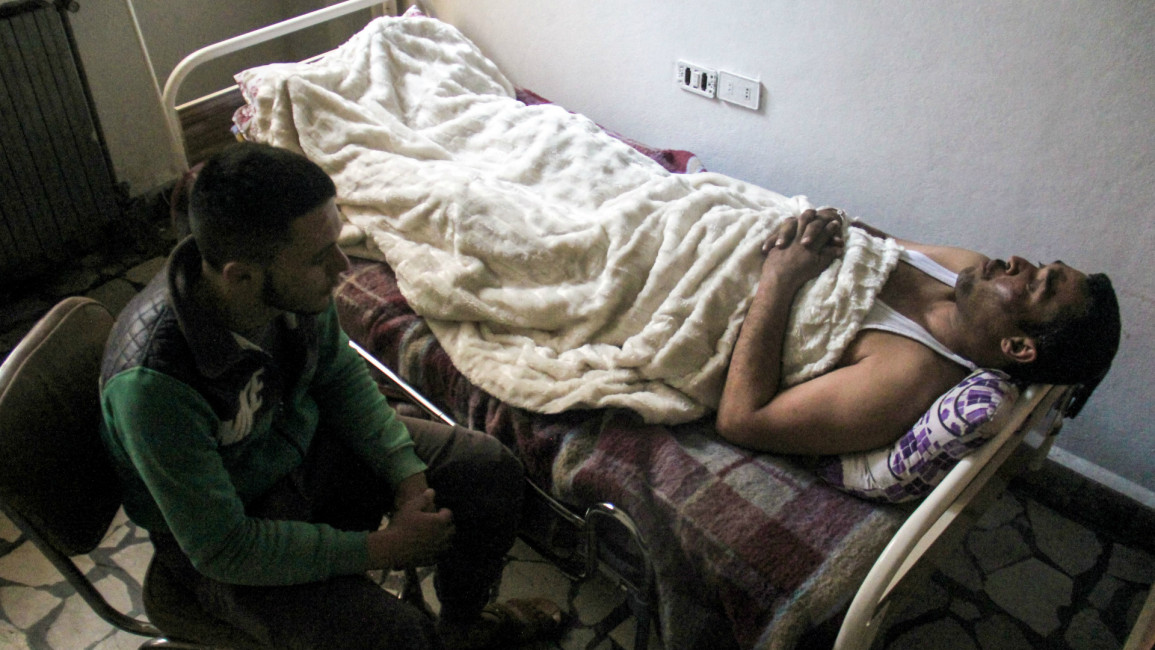Russian officials face Western sanctions over Syria war
Washington has warned Damascus that further use of chemical weapons could bring fresh US military retaliation, following missile strikes against a Syrian air field.
At the outset of the G7 gathering, British Foreign Secretary Boris Johnson described Assad as "toxic" and said it was "time for (Russian President) Vladimir Putin to face the truth about the tyrant he is propping up".
Johnson warned sanctions could soon target high-ranking Russian and Syrian officials who had been involved in coordinating Syrian military operations.
If adopted, these would mark the first sanctions against Russian officials over the war in Syria.
US secretary of state in Moscow
Meanwhile, the US secretary of state is set to hold talks with his Russian counterpart, Sergei Lavrov on Tuesday.
The Kremlin said Tillerson - who had known Putin for years - will not meet the Russian president on his first trip to Moscow as secretary of state - a sign of tensions between Washington and Moscow.
During the trip, Tillerson seeks to highlight Russia's role and culpability for Assad's war crimes in an effort to shame Putin into doing more to end the conflict, according to a CNN report which cited several state department officials.
Speaking to ABC, Tillerson said he was "hopeful that we can have constructive talks with the Russian government, with Foreign Minister (Sergey) Lavrov, and have Russia be supportive of a process that will lead to a stable Syria".
"Clearly, they are Bashar al-Assad's current ally," Tillerson said, "They should have the greatest influence on Bashar al-Assad, and certainly his decisions to use chemical weapons.
"They should have the greatest influence on him to cause him to no longer use those."
The US raised the stakes significantly on Monday when a senior US official said Washington has made a preliminary conclusion that Russia knew in advance of Syria's chemical weapons attack last week.
Article continues below
Fresh warning to Assad
On Monday, Washington made fresh warnings to Assad not to carry out any more chemical attacks.
"The United States will not passively stand by while Assad murders innocent people with chemical weapons, which are prohibited by international law and which were declared destroyed," Pentagon chief James Mattis said in a statement.
"The Syrian government would be ill-advised ever again to use chemical weapons," he added.
Mattis's warning came as White House spokesman Sean Spicer appeared to lower the threshold for new US action against Assad to include barrel bombs, a crude yet hugely destructive weapon of choice for the Syrian leader.
"If you gas a baby or drop a barrel bomb onto innocent people, you will see a response from" President Donald Trump, Spicer said.
The United States on Friday fired 59 Tomahawk missiles at the Shayrat air base near Homs, which the Pentagon said Assad's jets had used to launch a deadly chemical attack on rebel-held Idlib province that killed at least 87 civilians.
Washington's missile strike was the first time it had intervened directly against the regime of Assad, who is fighting a civil war with the backing of Russia and Iran.
Earlier this week, Syrian regime jets killed 89 people by using chlorine mixed with a nerve agent, possibly sarin.
Several rounds of UN-backed peace talks have failed to end the Syrian conflict, which has killed more than 320,000 people since March 2011.
The Syrian conflict began when the Baath regime, in power since 1963 and led by President Bashar al-Assad, responded with military force to peaceful protests demanding democratic reforms during the Arab Spring wave of uprisings, triggering an armed rebellion fuelled by mass defections from the Syrian army.
According to independent monitors, hundreds of thousands of civilians have been killed in the war, mostly by the regime and its powerful allies, and millions have been displaced both inside and outside of Syria.
The brutal tactics pursued mainly by the regime, which have included the use of chemical weapons, sieges, mass executions and torture against civilians have led to war crimes investigations.



